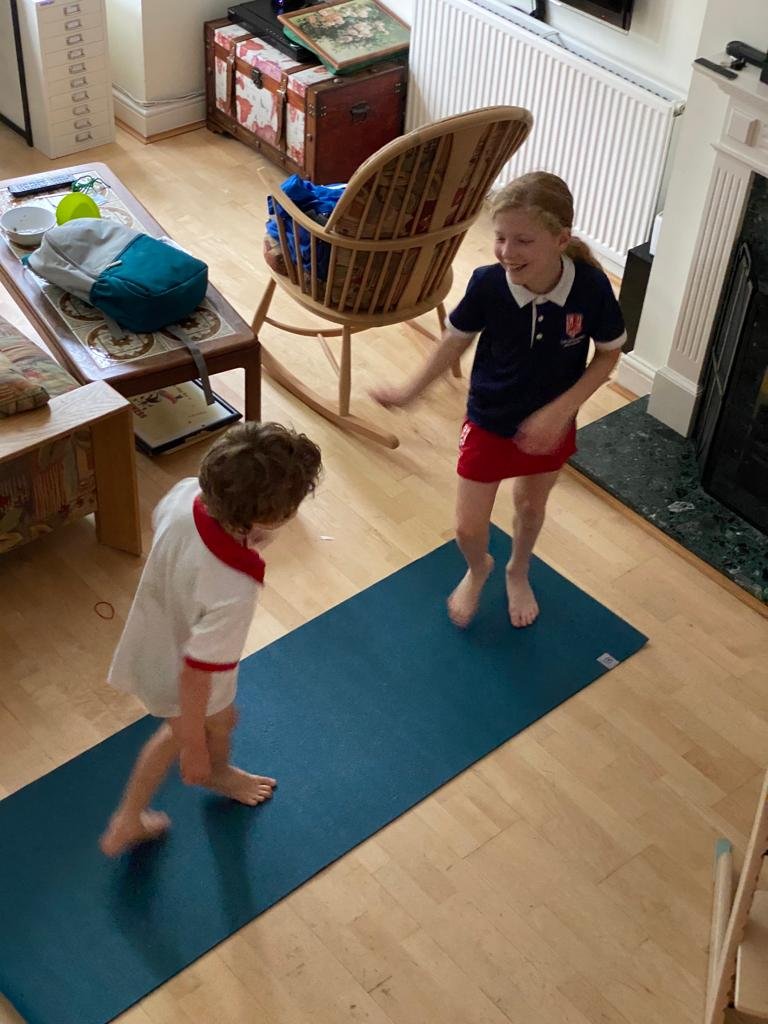I’ve been wanting to share this for months, but didn’t have the bandwidth. I think this will be helpful in lots of tough life situations.
Seek professional help.
I started regular therapy sessions. It’s just too much to handle by myself and I need to make sure I can look after my children and be helpful to Ukrainian people.
2. This too shall pass.
I’ve had this quote next to my bed for the last few months, and it really helped looking at it every night and remember that everything has an end at some point. Of course, there are different kinds of ends and I loathe thinking of all the suffering a lot of people are going through, but still, it did give me a little relief.
On a couple of sleepless nights I took out a notebook and wrote “this too shall pass” lots of times, until the whole page has been covered. That helped a bit too.
3. Allow myself to experience joy.
This is the toughest - I just couldn’t allow myself to be joyful for months. I don’t know if you’ve experienced the loss of a loved one... It is similar to when my grandmother died, just stretched over months. The only thing I’d allow myself was to occasionally work when I found a minute and to make sure I keep my existing clients happy. And that was the only time I felt joyful.
Then, one day I allowed myself to rent a bike and went for a 2.5 hour bike ride. It was something I’ve never done before and it was amazing. Then someone gave me their old bike so now I’m the proud bike owner. Every time I get on that bike I immediately feel joy. It’s like walking, but better. I feel like I’m flying just above the ground with the gentle breeze touching my skin.
And then, my kids. I’ve started noticing again the little conversation they have with each other. And dancing and singing to “Hey Google”. Or just humming while doing lego or doodling.
The shift happened when my therapist told me that stopping myself from feeling joy is not going to help people in Ukraine. But if I don’t experience joy, I won’t be able to be helpful. Feeling joy is imperative to our existence.
4. Ask the GP for sleeping aid.
Even though I am against overuse of medication, insomnia is a real killer, without exaggeration. So to break the cycle, in some life circumstances it’s a good idea to use sleeping aid. Of course, there are lots of other things you can do to help your sleep: Like not eating before bed (never works for me), not using technology, going to sleep at regular time, etc.
5. Minimise the time spent looking at the news.
This is the first time ever when I HAVE to look at the news. I’ve never been a fan of following the news before.
According to Michael Ceely, there are two types of stress, good stress and bad stress.
Good stress, are things like public speaking or meeting a deadline at work. Essentially, anxiety-provoking activities that you have control over.
Bad stress refers to things that cause anxiety, but where you have much less control. Things like war, politics, and the economy..
All stress produces cortisol, a hormone produced by the adrenal glands to inspire you to take action. When you're stressed, you feel like there's something you need to do.
If it’s good stress, you can dissipate the cortisol by taking action. If it's bad stress, like watching the news, the cortisol stays in your body, because there's no immediate action you can take to solve the problem.
And if you watch the news day after day, cortisol and other stress hormones begin to back up in your body, causing chronic anxiety.
So to stop myself from checking the news, I put time limits on Telegram, Facebook and Instagram - these are the places where I would come across the latest news. For you it might be BBC, FT apps, or something else. All of these can be limited.
6. Come to terms that this situation is not under my control.
Some things, like helping people arriving in the UK or sending aid and funds to Ukraine is in my control, but stopping people from dying and suffering unfortunately isn’t.
What strategies do you use to cope with tough life situations? Please let me know in the comments.


